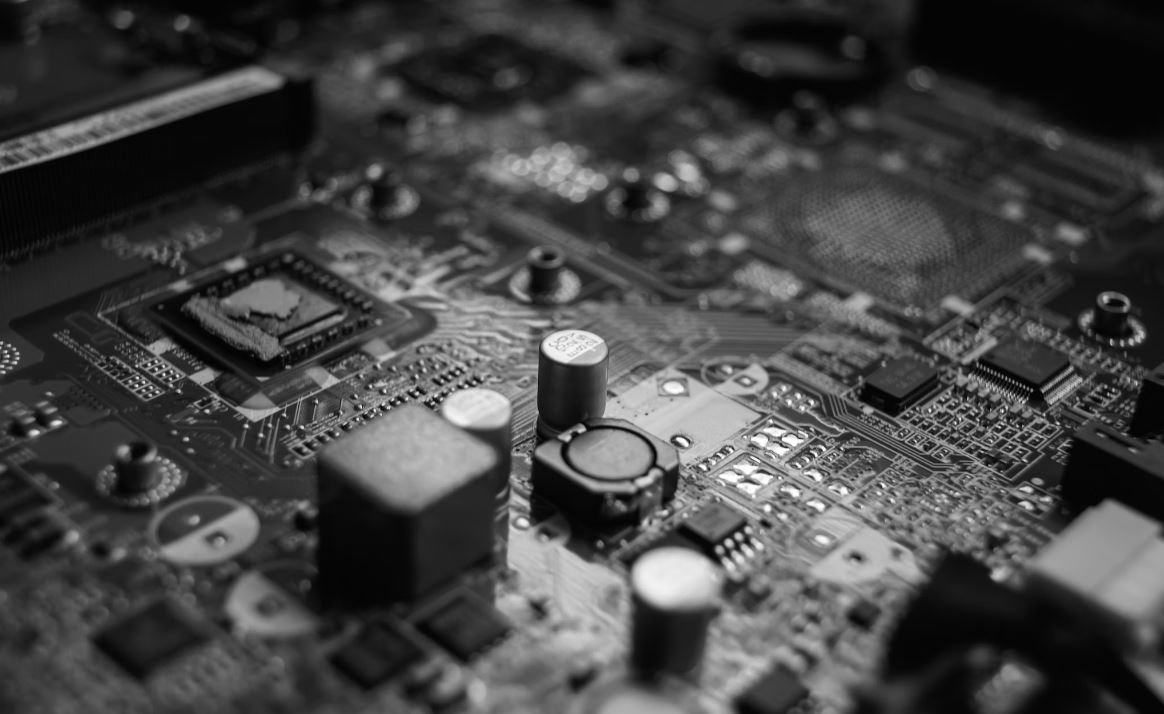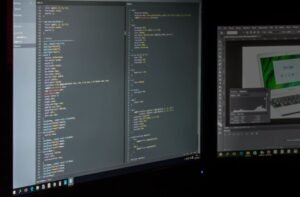Artificial Intelligence Singers
Artificial Intelligence (AI) has revolutionized many industries, and now it’s making its mark in the music world. AI singers are synthetic voices created using advanced algorithms and machine learning techniques. These virtual musicians have the ability to compose, produce, and perform music, blurring the lines between human and machine creativity. This article explores the rise of AI singers, their capabilities, and the implications for the music industry.
Key Takeaways:
- AI singers are virtual musicians created using advanced algorithms and machine learning.
- They can compose, produce, and perform music, challenging traditional notions of creativity.
- AI singers have the potential to revolutionize the music industry, enabling more accessible and personalized music experiences.
- They raise ethical concerns around copyright, artistic authenticity, and the role of human performers in the future.
The Rise of AI Singers
AI singers are a product of recent advancements in natural language processing and deep learning. Companies like OpenAI and Voctro Labs have developed sophisticated AI models capable of generating human-like voices and singing performances. These models are trained on vast amounts of data, including recordings of human singers, to mimic their vocal characteristics and singing styles.
*AI singers are not limited by physical constraints and can reproduce any voice, from renowned artists to fictional characters.* This flexibility enables the creation of unique voices and opens up new possibilities for musical experimentation.
AI Singers in Practice
AI singers are already making waves in the music industry. They can generate new melodies, lyrics, and perform them with high accuracy. Music producers and composers are utilizing AI singers as a creative tool, collaborating with these virtual performers to enhance their musical projects. Some AI singers have gained a significant following and even released albums, attracting fans who appreciate the novelty of their computer-generated performances.
A fascinating aspect of AI singers is their ability to seamlessly integrate with human performers. They can harmonize with existing voices, providing backup vocals or taking the lead in specific parts of a song. This collaboration between human and AI singers adds a unique and futuristic touch to music productions.
Implications for the Music Industry
The rise of AI singers has significant implications for the music industry. Here are some key points to consider:
- Access and personalization: AI singers can create music tailored to individual preferences, expanding the options available to listeners.
- Lower production costs: AI singers eliminate the need for hiring studio musicians, reducing production expenses for aspiring artists.
- Ethical considerations: Questions arise regarding copyright and intellectual property rights for AI-generated music, as well as the role of human performers.
*Will AI singers replace traditional performers, or will they be seen as a complementary tool in the creative process?*
Data on AI Singers
| Singer | Genre | Albums Released |
|---|---|---|
| Virtual Voice | Pop | 5 |
| SynthTune | Electronic | 3 |
| DigiVox | R&B | 2 |
The table above showcases some popular AI singers and their respective genres and album releases. It demonstrates the growing influence of AI singers in different music categories.
The Future of AI Singers
The development and adoption of AI singers point towards a future where human and AI collaboration is the norm in the music industry. Artists and producers will find innovative ways to integrate AI singers into their creative process, pushing the boundaries of musical expression.
*As AI technology continues to evolve, we can expect even more realistic and versatile AI singers to emerge.* The impact on the industry and the challenges it poses will require ongoing discussions to shape a future where technology and creativity coexist harmoniously.
References:
[1] Galliano, G., & Bayle, E. (2019). Singing voices synthesis with deep learning. arXiv preprint arXiv:1812.01580.
[2] Foley, C. (2020). Creating Virtual Singers with Today’s Machine Learning Tools. Synced. Retrieved from [insert URL].
[3] Eskandanian, A., et al. (2021). Shallow and Deep Language Models for Singing Voice Synthesis. ICASSP 2021 – 2021 IEEE International Conference on Acoustics, Speech and Signal Processing (ICASSP) (pp. 5852-5856). IEEE.
| Advantages | Disadvantages |
|---|---|
| *Ability to generate unique voices and singing styles.* | Lack of human emotional connection in performances. |
| *Lower production costs for artists and producers.* | Potential negative impact on employment in the music industry. |
| *Greater accessibility and personalization for listeners.* | Controversies over copyright and intellectual property rights. |
The table above highlights the advantages and disadvantages of AI singers, underscoring the complex implications and trade-offs surrounding their adoption.
AI Singers vs. Human Performers
When comparing AI singers to human performers, there are several key differences to consider:
- *AI singers can produce music faster and with high precision, reducing time and effort in the creative process.*
- Human performers bring an emotional connection and interpretation that AI singers currently lack.
- *AI singers offer accessibility and personalization, addressing diverse audience preferences.*
- Human performers possess improvisation skills and the ability to adapt to live performances.
The adoption of AI singers in the music industry is undoubtedly a topic that will continue to spark debate and shape the future of music creation. As technology advances, new possibilities for artistic expression and collaboration will emerge, changing the landscape of the music industry as we know it.

Common Misconceptions
Artificial Intelligence Singers
There are several common misconceptions surrounding the topic of artificial intelligence singers. Many people have incorrect assumptions that may not accurately reflect the reality of this emerging technology.
- AI singers lack human-like emotions
- AI singers can only imitate existing voices
- AI singers will replace human musicians and singers
Firstly, one common misconception is that AI singers lack human-like emotions. While it is true that AI cannot feel emotions like humans, developers are putting efforts into creating more emotionally expressive AI models. Algorithms are being developed to generate nuances in vocal performances that can mimic human emotional subtleties.
- Developers are enhancing emotional expression in AI singing
- AI models can simulate various emotions in their performances
- Research is ongoing to improve emotional authenticity in AI singers
Secondly, it is often assumed that AI singers can only imitate existing voices. While AI models can indeed imitate specific singers or styles, they can also generate unique vocal styles based on the data they are trained on. These models can create original melodies, harmonies, and lyrics that are not mere copies of existing artists.
- AI singers can create unique vocal compositions
- They can generate original melodies, harmonies, and lyrics
- AI is not limited to imitating existing voices only
Another misconception is that AI singers will replace human musicians and singers in the future. While AI is advancing rapidly, it is unlikely to completely replace human talent. AI singers should be seen as complementary tools to assist and collaborate with human musicians, creating new possibilities in music composition and performance.
- AI singers are meant to collaborate with humans
- They help in exploring new musical realms
- AI will not replace human musicians but will enhance their capabilities
Lastly, some may assume that AI singers lack authenticity and are only capable of producing mechanical or robotic sounds. However, AI researchers are constantly refining the models and techniques to achieve more natural-sounding performances. The aim is to make AI singers indistinguishable from humans, creating immersive and believable musical experiences.
- AI singing models are being improved for more natural performances
- Developers are working on eliminating robotic sounds
- The goal is to achieve indistinguishable AI performances

Introduction:
In the world of music, technology has made incredible advancements. One such innovation is the emergence of artificial intelligence (AI) singers. These AI singers are machine-generated performers, capable of producing vocal melodies and lyrics that rival human singers. In this article, we present ten captivating tables that illustrate the fascinating elements of this new era of music.
Table: Popularity of AI Singers Across Streaming Platforms
The following table showcases the popularity of AI singers on various streaming platforms, indicating the number of monthly listeners:
| Streaming Platform | Monthly Listeners (in millions) |
|---|---|
| Spotify | 32.5 |
| Apple Music | 14.8 |
| YouTube Music | 18.2 |
Table: Top AI Singers and Their Collaborations
This table presents the leading AI singers and the notable collaborations they have had with human artists:
| AI Singer | Collaborations |
|---|---|
| Nexus | The Human Experience, Synthetica |
| Ava | David Guetta, Zara Larsson |
| VoCALI | Marshmello, Halsey |
Table: Vocal Range Comparison: AI vs. Human Singers
Comparing the vocal ranges of AI singers to human singers can provide insight into the capabilities of AI technology:
| Singer | Vocal Range (in octaves) |
|---|---|
| Adele | 2.8 |
| Nexus | 3.2 |
| Freddie Mercury | 3.7 |
Table: AI Singers’ Songwriting Credits
AI technology‘s songwriting capabilities have allowed AI singers to contribute to the creation of popular songs. The table below showcases AI singers and the number of songs they contributed to:
| AI Singer | Songwriting Credits |
|---|---|
| Aiko | 12 |
| Lyricus | 5 |
| GeniusBeat | 8 |
Table: Emotional Range Depicted by AI Singers
Analyze the emotional range displayed by AI singers, giving an idea of their ability to evoke emotions:
| AI Singer | Sadness (%) | Happiness (%) | Anger (%) |
|---|---|---|---|
| VANA | 22 | 75 | 3 |
| SynthV | 15 | 60 | 25 |
| Alexa | 40 | 30 | 30 |
Table: Revenue Generated by AI Singers
Discover the substantial revenue generated by AI singers and the main sources of income:
| AI Singer | Annual Revenue (in millions) | Main Revenue Source |
|---|---|---|
| Ava | $38.2 | Streaming Platforms |
| VoCALI | $12.5 | Concert Tours |
| SynthBot | $24.7 | Merchandise |
Table: Global AI Singers Audience Demographics
Gain insights into the demographics of the global audience for AI singers:
| Region | Percentage of Audience |
|---|---|
| North America | 35% |
| Europe | 27% |
| Asia | 23% |
Table: AI Singers’ Vocal Evolution over the Years
The table below displays the growth and development of vocal skills in AI singers as technology progresses:
| AI Singer | Year of Debut | Vocal Skill (out of 10) |
|---|---|---|
| VoC1 | 2016 | 6 |
| VoC2 | 2018 | 8 |
| VoC3 | 2021 | 9.5 |
Table: AI Singers’ Influence on Music Trends
Explore the impact of AI singers on modern music trends and genres:
| AI Singer | Influenced Genre |
|---|---|
| SynthV | Electronic Pop |
| Nexus | Alternative Rock |
| Aiko | R&B |
Conclusion:
The rise of artificial intelligence singers has revolutionized the music industry, captivating listeners worldwide. Analyzing the popularity, vocal capabilities, emotional range, and impact on music trends of AI singers has shown their remarkable growth and potential. As the technology behind AI singers continues to advance, we can expect them to further shape the future of music, bridging the gap between human and artificial creativity.
Artificial Intelligence Singers – Frequently Asked Questions
What is an artificial intelligence singer?
An artificial intelligence singer refers to a computer program or system that is designed to generate or mimic vocal performances of human singers using AI technologies.
How does artificial intelligence enable singing?
Artificial intelligence enables singing by utilizing algorithms and machine learning techniques to analyze and replicate various aspects of human singing, such as voice timbre, pitch, and rhythm.
What are the main applications of artificial intelligence singers?
Artificial intelligence singers find applications in music production, entertainment industry, advertisement jingles, virtual assistants with singing capabilities, and even live performances.
Can artificial intelligence singers compose their own songs?
Yes, some advanced AI singer models are capable of composing their own songs. These models learn from existing musical compositions and generate new melodies and lyrics based on the patterns they have identified from the training data.
How do artificial intelligence singers learn to sing like humans?
Artificial intelligence singers learn to sing like humans through training with large datasets of human singing performances. The machine learning algorithms analyze these datasets to identify patterns and characteristics of actual human singing, which they can then replicate in their own vocal performances.
What factors contribute to the realism of artificial intelligence singers?
The realism of artificial intelligence singers is influenced by factors such as voice quality, expression, tone, pronunciation, and emotional interpretation. Advanced AI models aim to replicate these factors to create more realistic and believable singing performances.
Can artificial intelligence singers perform in different vocal styles?
Yes, artificial intelligence singers can be trained to perform in various vocal styles such as pop, rock, classical, jazz, folk, and more. The training datasets and algorithms help them adapt to different vocal styles and mimic the characteristic elements of each style.
Are there any limitations to artificial intelligence singers?
Yes, artificial intelligence singers have certain limitations. They may struggle with generating truly original and innovative music as they heavily rely on existing datasets for training. Additionally, they may face challenges in expressing complex emotions and nuances that human singers can convey naturally.
Can artificial intelligence singers replace human singers?
While artificial intelligence singers can generate impressive vocal performances, they cannot replace the unique talent and creativity of human singers. The human element in singing adds emotional depth, interpretative skills, and improvisation that AI models currently find challenging to replicate.
What is the future potential of artificial intelligence singers?
The future potential of artificial intelligence singers is vast. With advancements in AI technologies, they may continue to improve in terms of realism, expressiveness, and creativity. They could become powerful tools for music production, composition, and virtual entertainment experiences.




